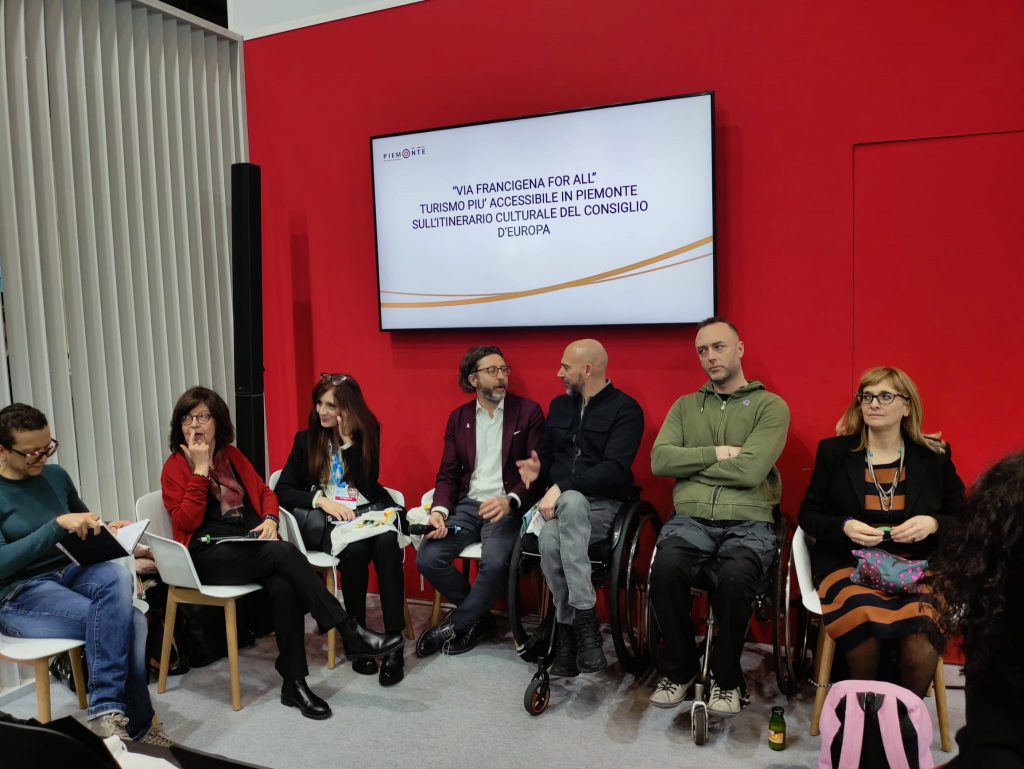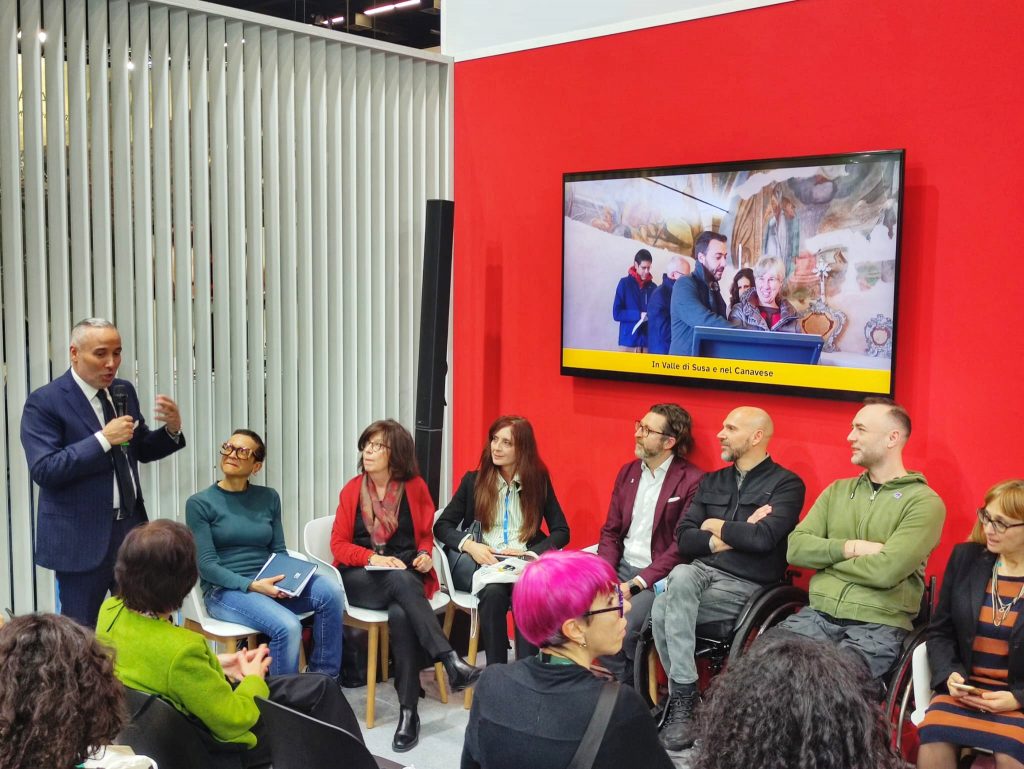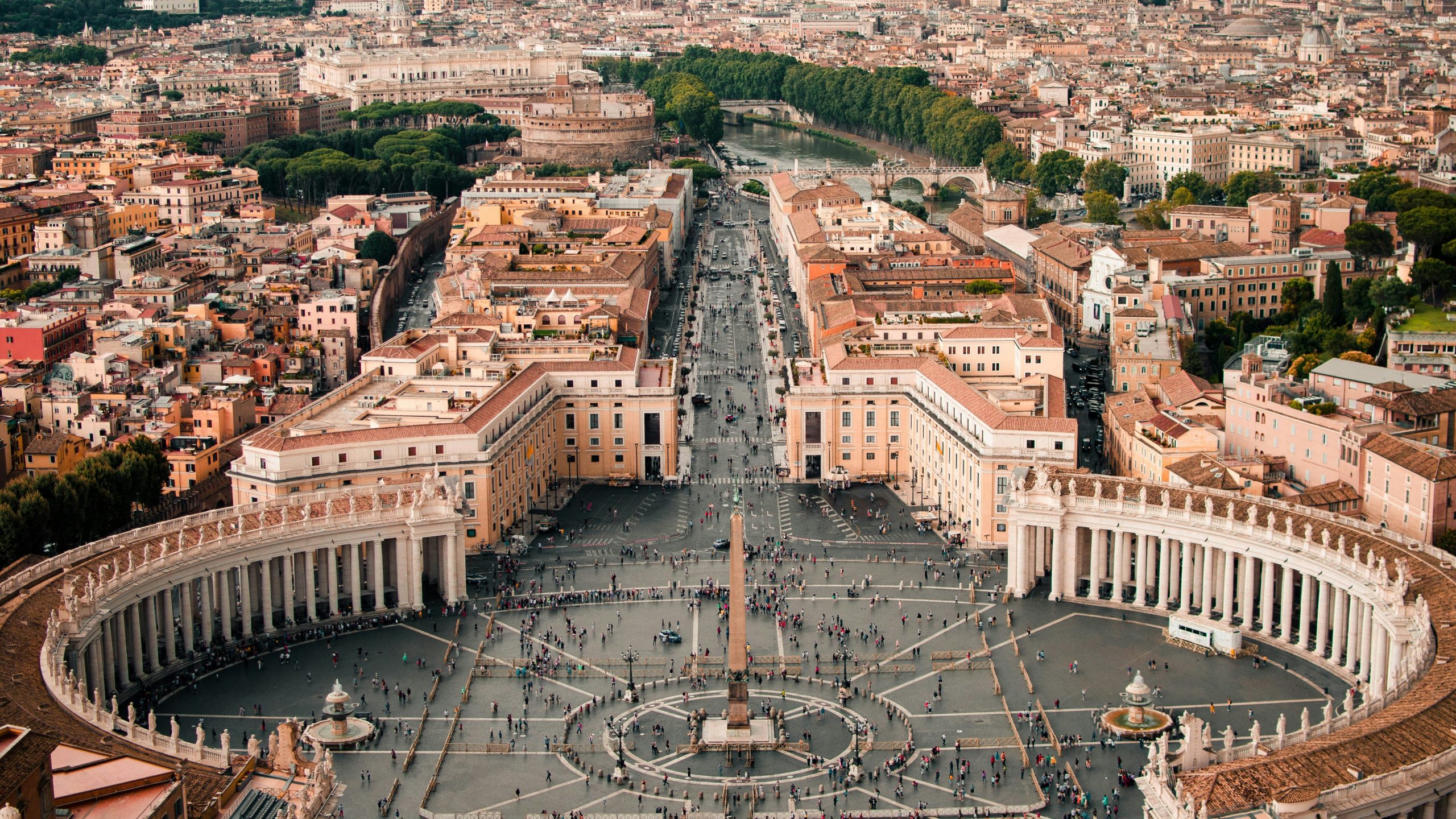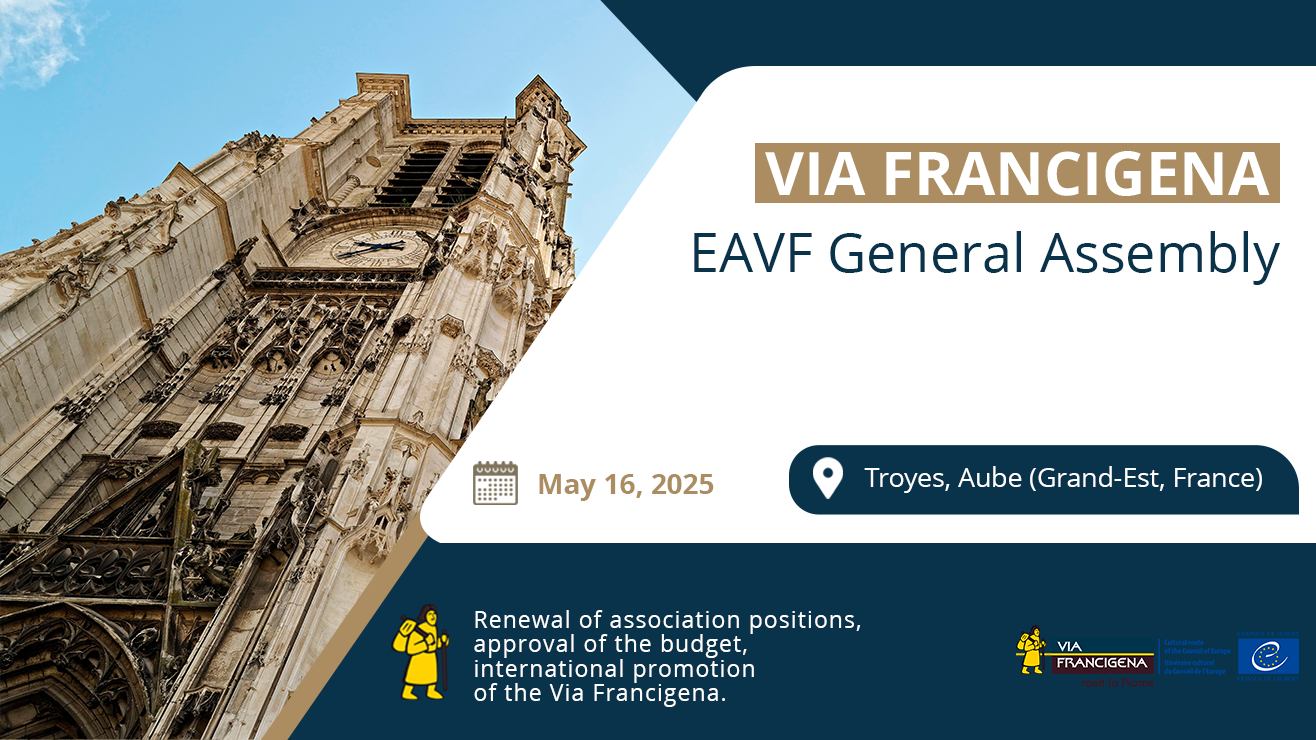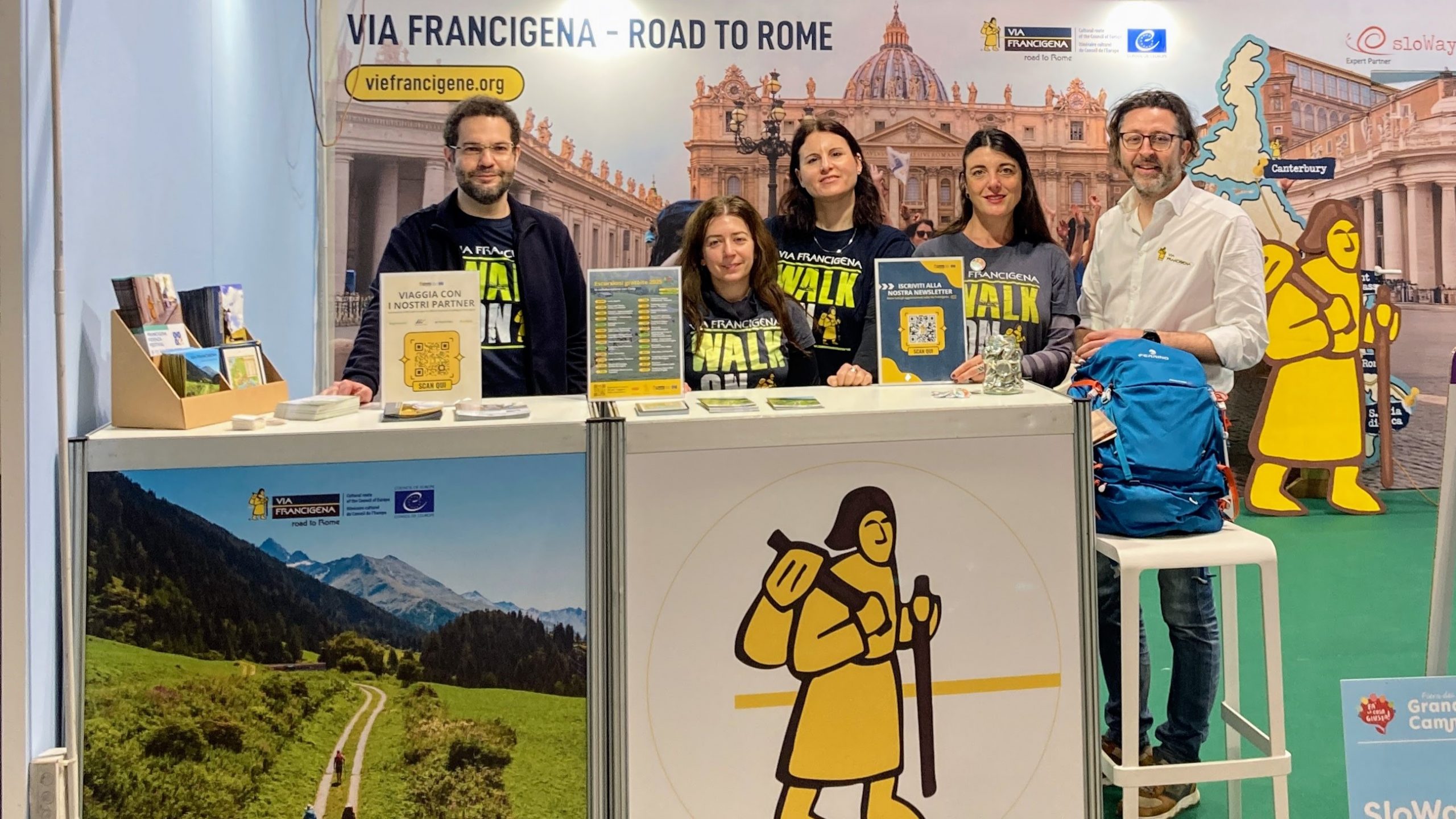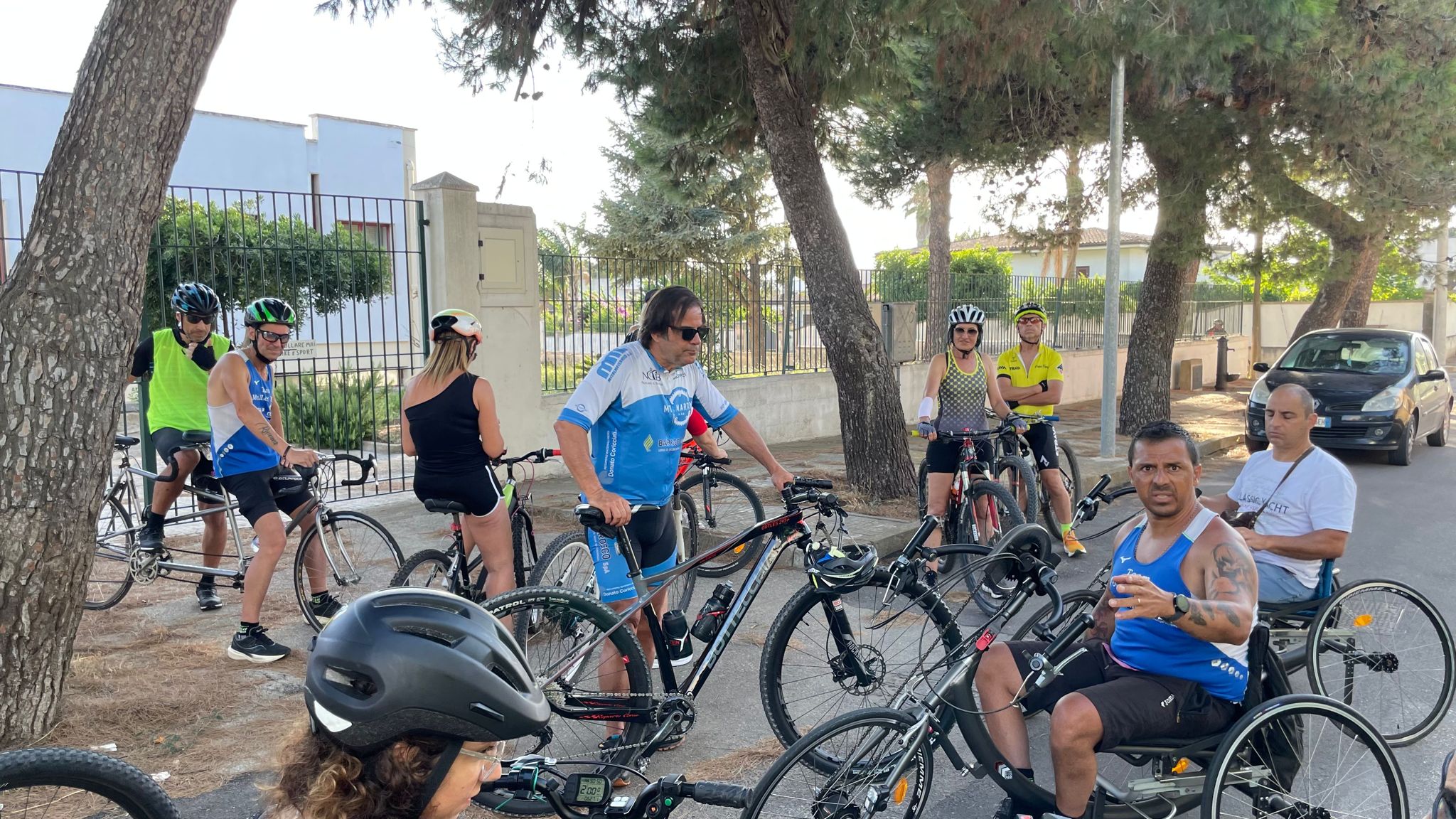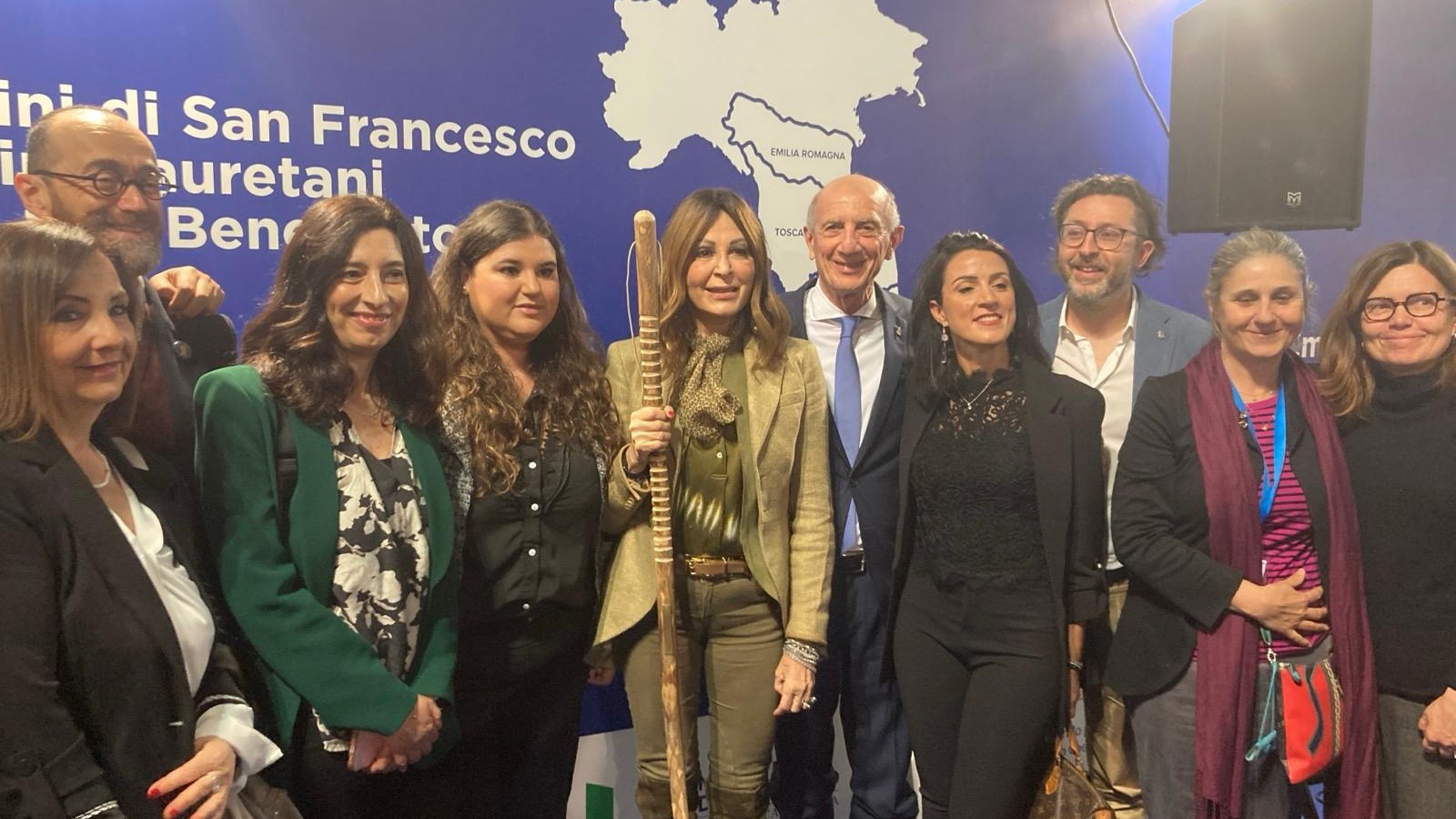A new model of tourism along the Via Francigena, accessible and inclusive for everyone, was the strong message launched last Monday at the Piedmont region stand at the Borsa Internazionale di Turismo (BIT) in Milan.
During the event, “Tourism for All” was presented, the accessible tourism project realised with the National Recovery and Resilience Plan (PNRR) funds to adapt structures and paths, with the aim of making them more accessible also to people with disabilities.
The project develops on two sections of the Via Francigena in Piedmont. The stretches involved in the project are Ivrea-Viverone, in the Canavese area, and Villar Focchiardo-Avigliana, part of the Susa Valley variant, together with other neighboring territories.
Ongoing activities include the systematisation of existing good practices for the reception of people with disabilities, the adaptation of infrastructures and tourist websites, the organization of accessible services, the training of tourism operators, the creation of accessible tourism experiences, and the construction of an adequate reception system. An important step will be the creation of a guide dedicated to accessibility in this stretch.
An important aspect is also the activation (ongoing) of extracurricular internships in the tourism sector for people with disabilities, carried out with the support of the Piemonte Lavoro Agency.
The meeting was introduced by vice president Fabio Carosso and moderated by journalist Rosalba Graglia.
Barbara Bellini, head of tourism for the Piedmont Region, outlined the outlines of the initiative, while the director of our association Luca Bruschi emphasized the international dimension of the Via Francigena, with reference to the numbers of attendance and the profile of its pilgrims, recently updated with the data of the just-ended year.
Danilo Ragona and Luca Paiardi, creators of the “Viaggio Italia” project, shared their experiences related to disability, hoping that this pilot project can materialise into a future guide and can be exported to other regions.
Valentina Sapienza and Giuliana Garavini, disabled interns of the “Via Francigena for All” project – already mentioned in this article -, presented their experience to the public.
There is still much work to be done, starting with a new cultural approach of institutions able to put universal enjoyment of our paths and trails at the center of territorial development policies. In this context, the work of the Piedmont region represents a significant starting point, as well as a pilot project that offers a model to be taken up, hopefully, in other Italian regions.
